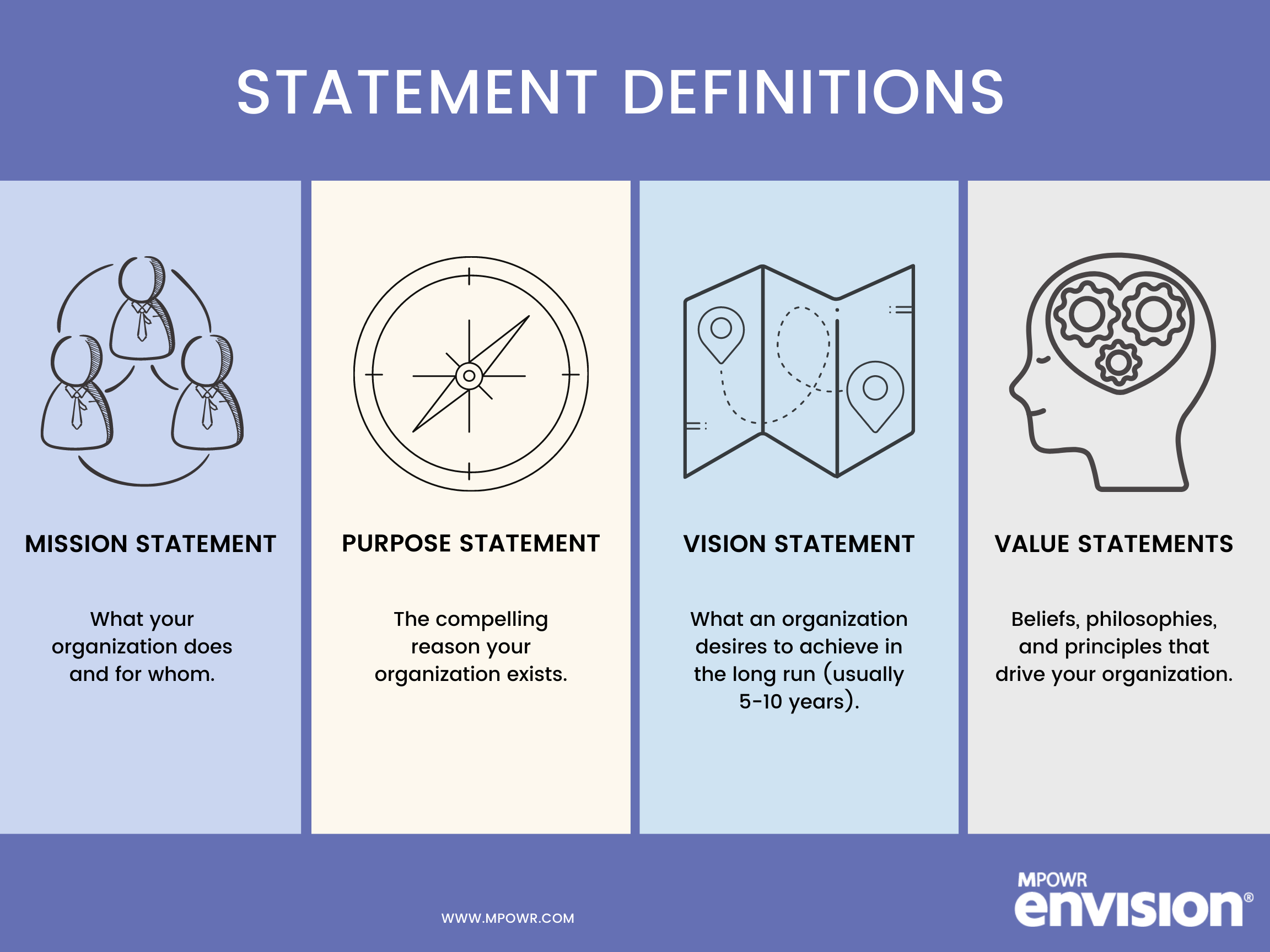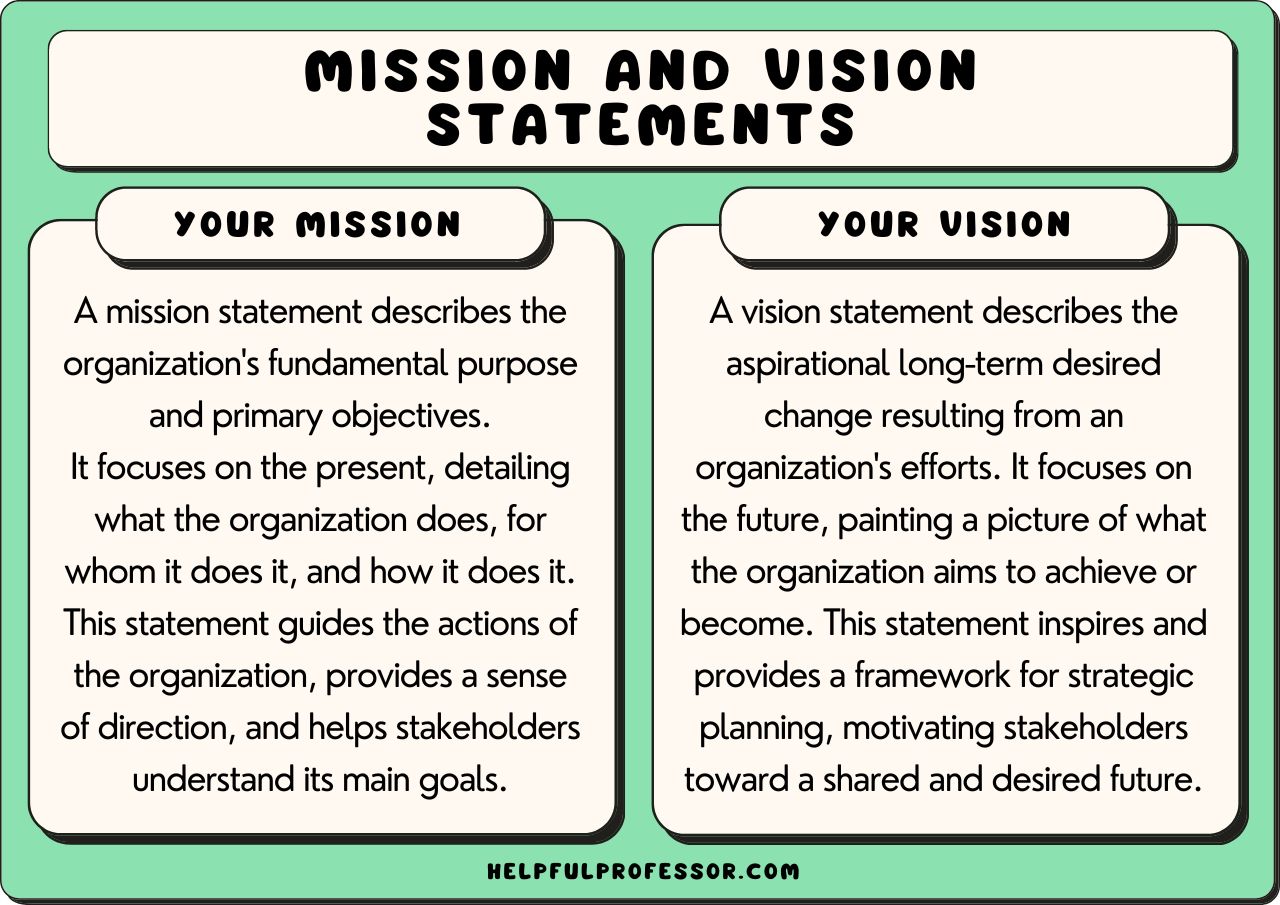Why Is A Vision Statement Important

Businesses failing to thrive? It might be a vision problem. Many organizations are stumbling, lacking a clear, concise roadmap to guide their actions and inspire their teams.
A strong vision statement isn't just corporate jargon. It's the engine that drives strategy, aligns employees, and ultimately, determines success or failure in a competitive landscape.
Why a Vision Statement Matters NOW
In today's volatile market, a vision statement provides essential clarity. It answers the fundamental question: What are we striving to achieve? Without this, companies risk drifting aimlessly, wasting resources, and losing market share.
Data consistently shows a direct correlation between companies with well-defined vision statements and higher performance. Studies from Harvard Business Review and McKinsey & Company highlight that companies with clear strategic direction are 12% more likely to outperform their competitors.
Employee Alignment and Motivation
A compelling vision statement acts as a powerful motivator. When employees understand the overarching goal and how their individual contributions fit into the bigger picture, they are more engaged and productive.
Gallup's research indicates that engaged employees are 21% more productive. A shared vision fosters a sense of purpose, leading to increased job satisfaction and reduced employee turnover.
Strategic Decision-Making
Every decision, from product development to marketing campaigns, should be aligned with the vision statement. This ensures that resources are allocated effectively and that the company is moving in a unified direction.
Without a vision statement, decisions become reactive and fragmented. This leads to inefficiencies, missed opportunities, and ultimately, a diluted brand identity.
Attracting Investors and Customers
Investors and customers are drawn to companies with a clear sense of purpose. A well-articulated vision demonstrates a commitment to long-term success and builds trust.
A study by PwC revealed that 63% of consumers prefer to buy from companies that stand for a purpose that reflects their own values and beliefs. A strong vision communicates that purpose effectively.
The Cost of Neglecting a Vision
Ignoring the importance of a vision statement can have dire consequences. Companies risk becoming irrelevant, losing ground to competitors, and ultimately, failing to adapt to changing market conditions.
Kodak serves as a stark reminder. Their failure to embrace digital photography, despite inventing it, stemmed from a lack of vision and a failure to adapt to the evolving landscape.
"Without a vision, the people perish." This ancient proverb underscores the importance of a clear direction, applicable to both individuals and organizations.
Moving Forward: Defining Your Vision
The time to act is now. Organizations must prioritize the development and communication of a clear, compelling vision statement. This requires a collaborative effort involving leadership, employees, and key stakeholders.
Start by assessing your current market position, identifying your core values, and defining your long-term goals. Then, craft a concise statement that encapsulates your aspirations and inspires action.
The future of your business depends on it. Don't let a lack of vision be your downfall.













.jpeg)




